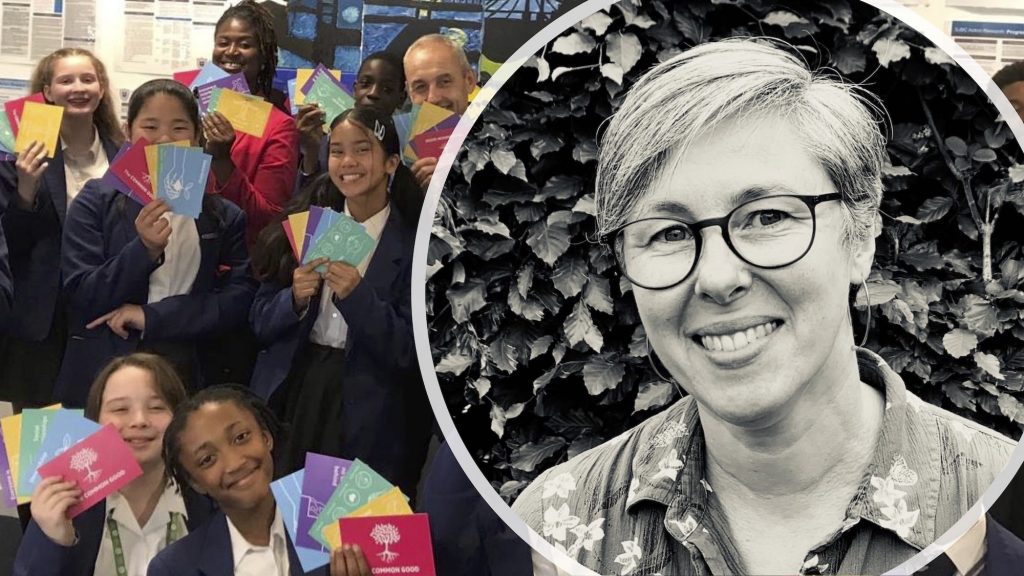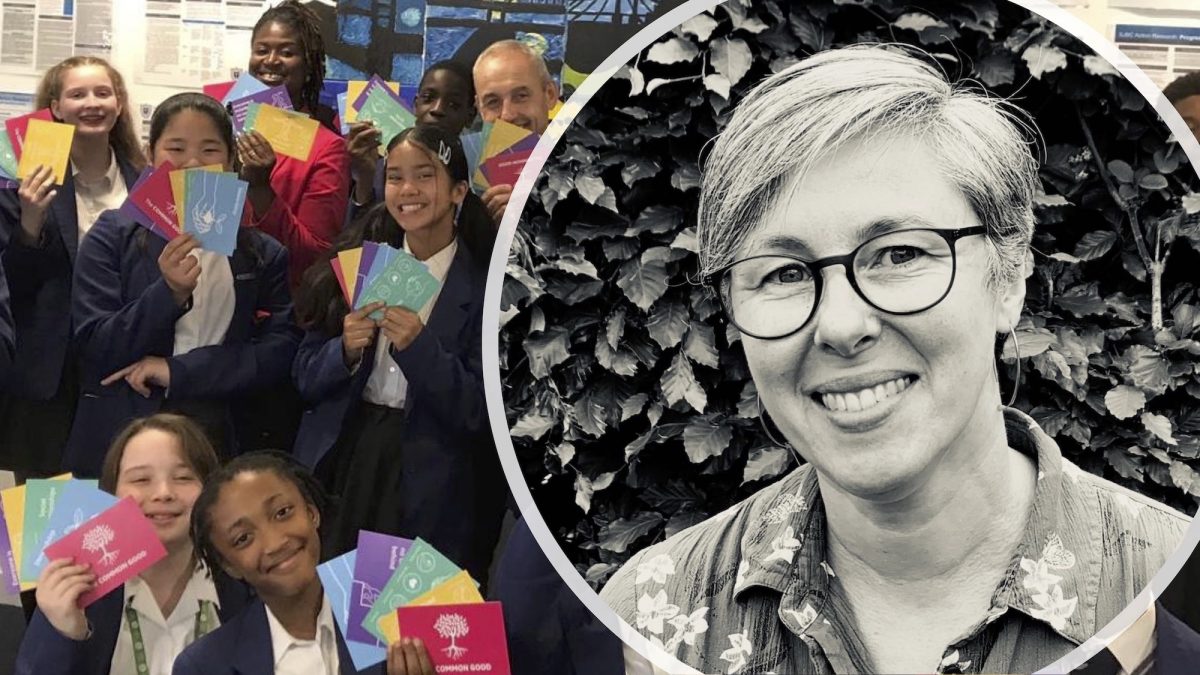
Update: Common Good Schools
We are delighted to announce the appointment of our Common Good Schools Project Leader, Jo Stow. Here, she introduces herself and shares her vision for young people and schools.
I am delighted to be part of the T4CG team and feel blessed to be able to further the work of Common Good Schools.
A little about me… I’m married to Duncan and we have two daughters, who are both at secondary school. As a family, we span different Christian traditions and have worked ecumenically on various projects over the years. I enjoy playing the piano and singing both for worship and for my own enjoyment.
I began my career as a primary school teacher, working in Bradford and then in Leeds. Whilst teaching in Leeds I had the opportunity to serve as a youth minister in a vibrant and diverse inner-city parish. In 2005 I began work for the Catholic Diocese of Leeds as Coordinator for Evangelisation, where I stayed until 2012. When the children came along, I took a break to have time with them at home. Since, I have developed several roles such as freelance writing, teaching the children music for use during Mass and collective worship in our local primary school.
Common Good Schools is a flexible off the shelf resource for 11 – 16 year olds. Students learn about the Common Good Principles through 10 lessons and 10 assemblies and then apply and develop their knowledge during the Community Engagement Activities. Together, these three strands promote transformation within a school or youth organisation and outside in the neighbourhood. Running over ten weeks, the resource guides schools to become a ‘Hub’ in their community, engaging with institutions and groups for the flourishing of all in the locality.
A couple of examples of Community Engagement Activities in our pilot schools show the impact of bringing together local organisations for a common purpose, and the benefits for all involved.
In Liverpool, a local exhibition for Holocaust Memorial Day was put on by young people, and hosted by a community partnership forged through Common Good Schools. The school assembled a working group involving the local Jewish Community, the Anne Frank Trust, local youth organisations and a neighbouring church, all working together. Local guest speakers and sponsorship strengthened the relationships. Attendance was significant. The local newspaper editor commented “Alsop is not just a school at the heart of a community, it is leading the community.”
In London, St John Bosco College forged a relationship with a local care home and Year 9s met with the elderly residents. The relationship continued despite lockdown, within the constraints of government Covid safety measures. Thanks to the Common Good Schools programme, residents were not forgotten and stayed connected with their young friends over Zoom, who even sent hand-written personal Christmas cards. Now lockdown is over, young and old will continue meeting in person and carry on building their relationship.
Common Good Schools is based on Catholic Social Teaching but is presented in non-religious common good language – making it suitable for everyone of all faiths and none. It helps schools to meet the six Character benchmarks, helps with Ofsted section 48/SIAMS and links to PSHE curriculum. It places a strong emphasis on relationship building, relationship with place and the value of each human being. For church schools, worship and scripture are a natural fit and complement the versatile content. The programme allows students to explore their vocation and purpose, recognising that each person has something important to contribute, strengthening their sense of wellbeing.
My vision for Common Good Schools is that:
Students would be inspired to take responsibility for and engage with the civic life of their local community. What excites me is that through the confidence and skills they have gained, young people would be equipped to build relationships of trust with diverse groups, in contrast to the fragmentation of communities through polarisation of opinion.
Schools would be enabled to explore their unique identity as a trusted institution in their locality and develop an ethos that is outward looking, enabling their students, school community and neighbourhood flourish. My hope is that schools who use the Common Good Schools programme would support other schools to do the same in their area.
If you have a connection with your local secondary school perhaps as a student, parent, leader, member of staff or governor or belong to a youth organisation and would like to know more, visit our webpage or contact me on jo@togetherforthecommongood.co.uk
Jo Stow
Common Good Schools Project Leader
Together for the Common Good
Jo works for T4CG on Tuesdays and Wednesdays

